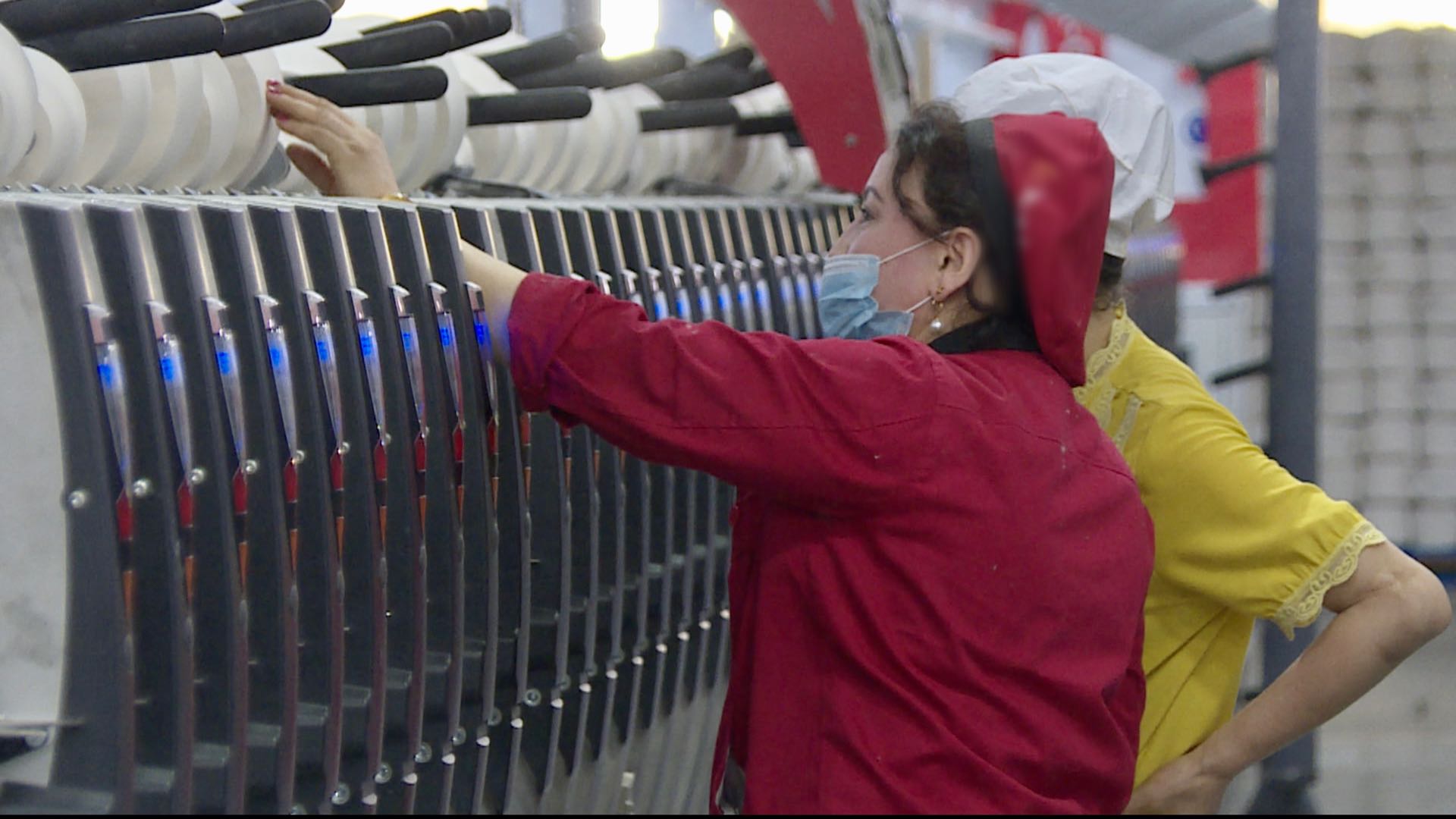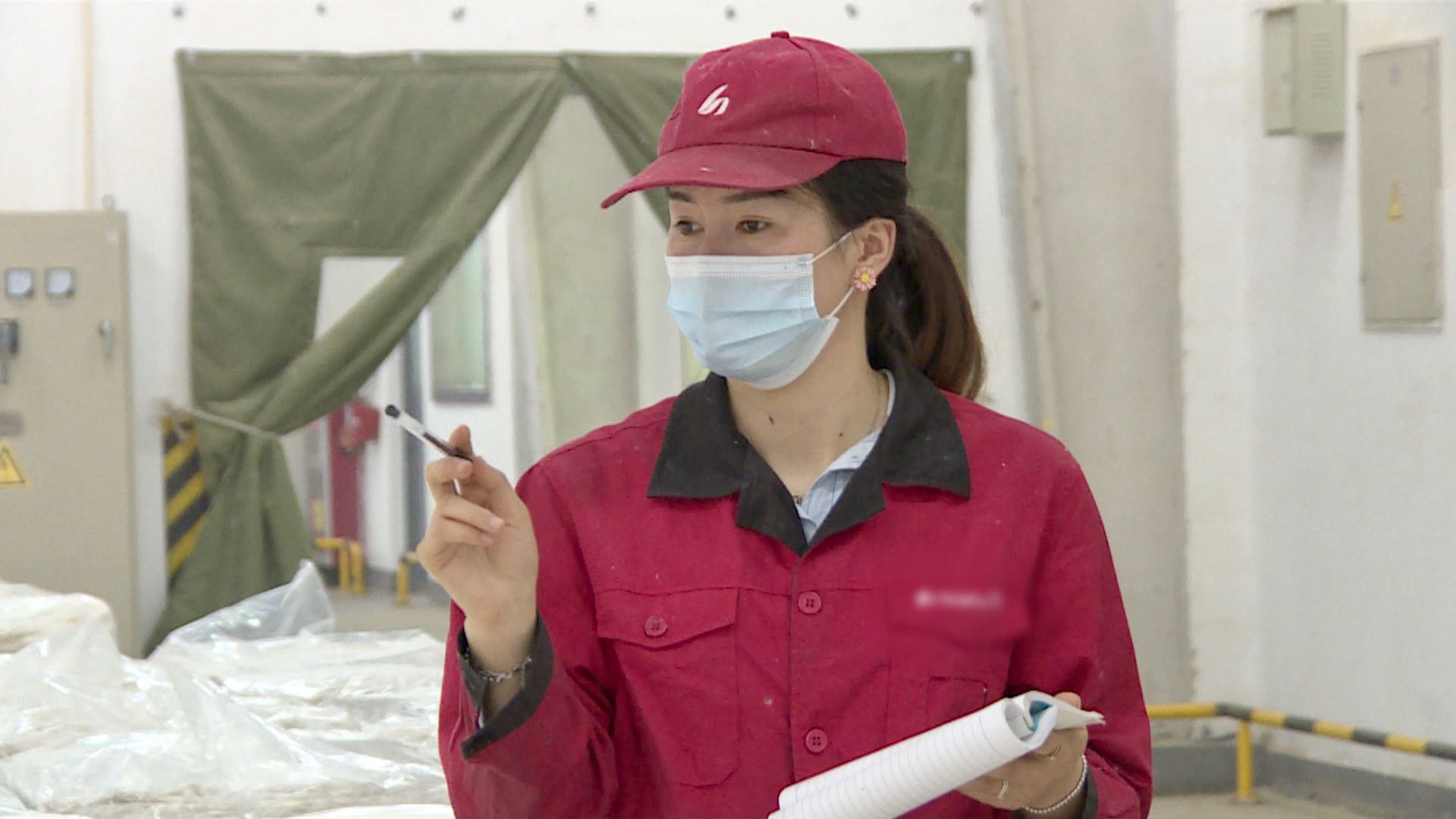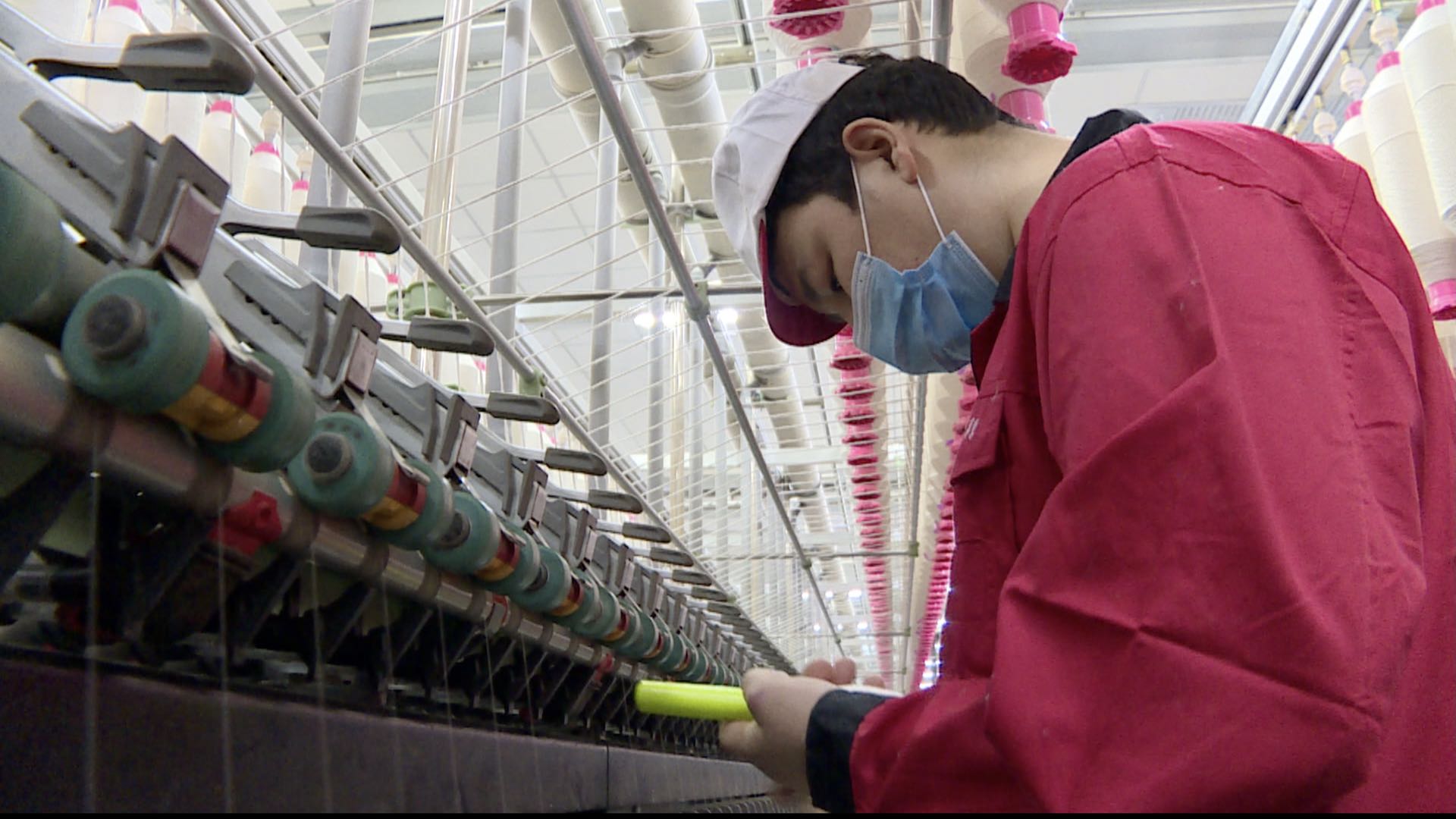04:03

Dilnir Bahtiyar is the eldest daughter of her family. Her father became disabled after a traffic accident, and her mother left them after divorce.
Her two younger sisters, one still at school and the other who's just started work, are unable to support the family. Despite all the hardships, she managed to finish college and now is the only Uygur among the 10 accountants in a cotton textile factory, thanks to her education background.
"I came to the factory in 2017. At first, my salary was not very high. But I sent half of it home to my father every month," said Dilnir, "Gradually, as my salary increased, I paid off my loans and also saved some money. I've bought some new furniture for my family and an electric tricycle for my father to make life more convenient for him."

Dilnir Bahtiyar, 25, works at a cotton textile factory which is among the Chinese entities sanctioned by the U.S. last year, in Aksu City, Xinjiang Uygur Autonomous Region, northwest China, March 29, 2021. /CGTN
Dilnir Bahtiyar, 25, works at a cotton textile factory which is among the Chinese entities sanctioned by the U.S. last year, in Aksu City, Xinjiang Uygur Autonomous Region, northwest China, March 29, 2021. /CGTN
She is just one of the thousands of Uygur employees at a cotton textile company in Aksu, southern Xinjiang, devoting themselves assiduously to working for a better life.
But these diligent and motivated workers have been described in Western propaganda as "forced labor." And the company that employs them was among the entities sanctioned by the U.S. last May over what Washington says as a human rights issue.
The firm has requested anonymity to avoid any more negative repercussions amid the recent Xinjiang cotton ban.
A senior executive who also wants to remain anonymous said the company suffered significant losses after the sanctions last year. But still, management insisted factory operation continued, as over 5,000 local people, 90 percent of whom are Uygurs, rely on the factory for work.
The executive added that textile workers might not have strong feelings about what the company has been through, but management has been under great pressure because they are sparing no efforts to save the jobs for the workers.
As the largest yarn maker in the textile hub of Aksu, the company is a key local employer, helping over 2,600 people shake off poverty since it was founded in 2010.

Abla Mamati, 31, works at a cotton textile factory which is among the Chinese entities sanctioned by the U.S. last year, in Aksu City, Xinjiang Uygur Autonomous Region, northwest China, March 29, 2021. /CGTN
Abla Mamati, 31, works at a cotton textile factory which is among the Chinese entities sanctioned by the U.S. last year, in Aksu City, Xinjiang Uygur Autonomous Region, northwest China, March 29, 2021. /CGTN
Abla Mamati had only about 60 square meters of cotton field in his hometown, and the annual income from growing cotton couldn't support his family of seven. So he came to Aksu looking for a job.
Now Abla has a four-year-old daughter, and he's just bought a house in downtown Aksu with a monthly mortgage repayment of 1,600 yuan (around $240).
"I met my wife a year after I came to the factory. We both work here and we can earn over 10,000 yuan per month. If I hadn't taken the job, my life would be much harder," said Abla.
Dilnir's colleague, Patigul Tursun, is the only person in her family who has a job. Her mother-in-law has been bed-ridden with severe diabetes for years and her husband has to stay home to take care of her.
Her two teenage daughters are both in boarding school – which makes life easier for her. After years of hard work, she is now the head of the workshop in the factory. And in 2016, she was named a "national model worker" in the textile industry.
"In 2016, I instructed the new employees. I trained them to use the machines safely. I did very well at work, so I got a (government) award. And I went to Beijing to receive the award. It was the first time I'd ever traveled by plane and also my first time in Beijing. I'm really grateful because if I didn't have this job, I might never have the chance to travel to Beijing," said Patigul.
The company's products used to be exported to the U.S. and Europe, but now they've been re-directed to the domestic market.
But even during the most difficult times following the sanctions, the workers said there were no cuts both in their wages or bonuses.
(Cover: Patigul Tursun (L), 45, shows a new worker how to safely use the machine at a cotton textile factory which is among the Chinese entities sanctioned by the U.S. last year, in Aksu City, Xinjiang Uygur Autonomous Region, northwest China, March 29, 2021. /CGTN)

